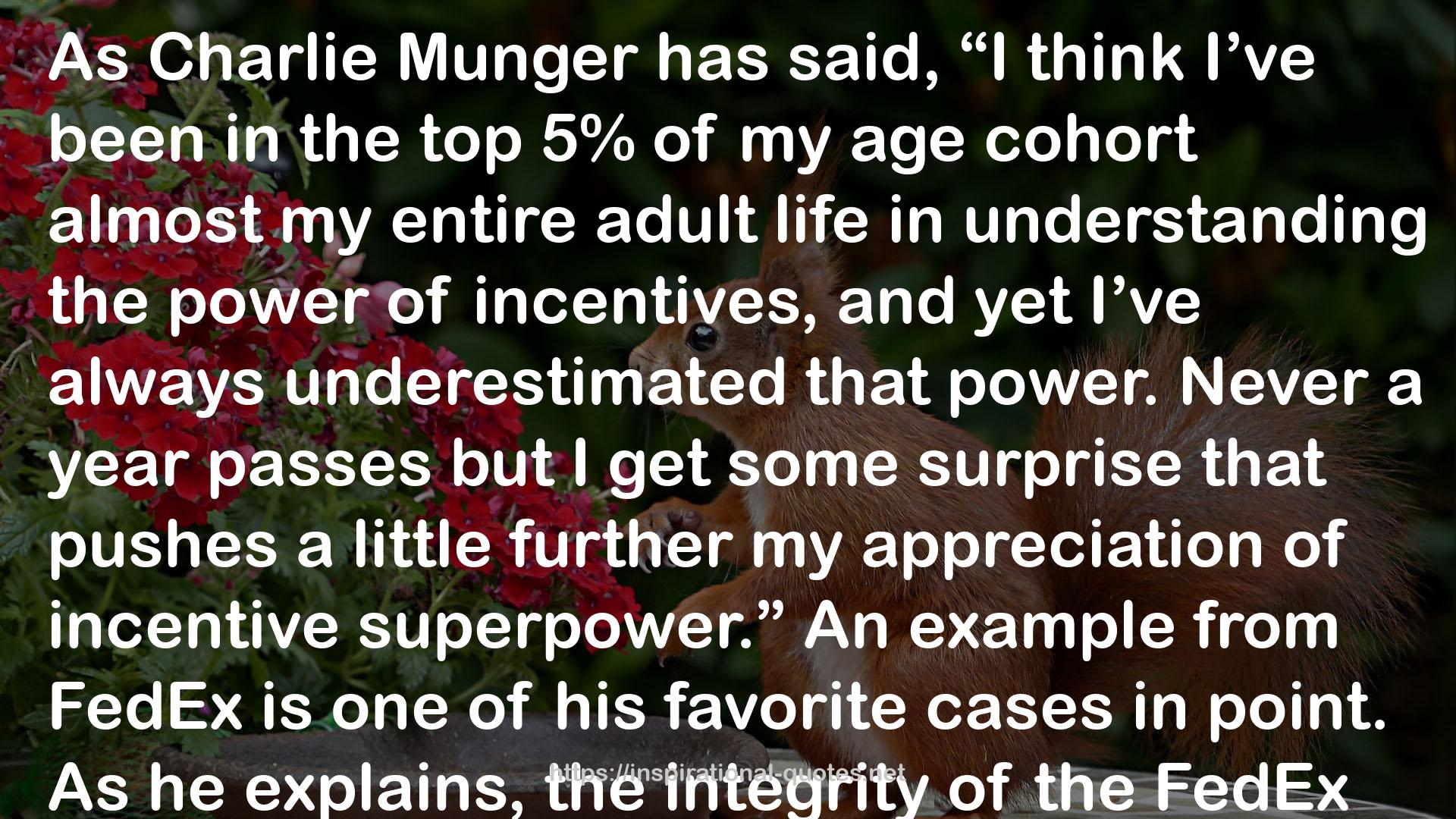" As Charlie Munger has said, “I think I’ve been in the top 5% of my age cohort almost my entire adult life in understanding the power of incentives, and yet I’ve always underestimated that power. Never a year passes but I get some surprise that pushes a little further my appreciation of incentive superpower.” An example from FedEx is one of his favorite cases in point. As he explains, the integrity of the FedEx system relies heavily on the ability to unload and then quickly reload packages at one central location within an allotted time. Years ago, the company was having a terrible problem getting its workers to get all the boxes off and then back on the planes in time. They tried numerous different things that didn’t work, until someone had the brilliant idea of paying the workers by the shift as opposed to by the hour. Poof, the problem was solved.2 FedEx’s old pay-by-the-hour system rewarded those who took longer to get the job done. They were incentivized to take longer. By switching to pay-by-the-shift, workers were motivated to work faster and without error so they could go home, yet still earn the wages of a full shift. For the workers, finishing early amounted to a higher effective hourly wage. By aligning the business’s interests with the worker’s incentives, FedEx got the outcome it and its workers both desired. The "
― , Warren Buffett's Ground Rules: Words of Wisdom from the Partnership Letters of the World's Greatest Investor
